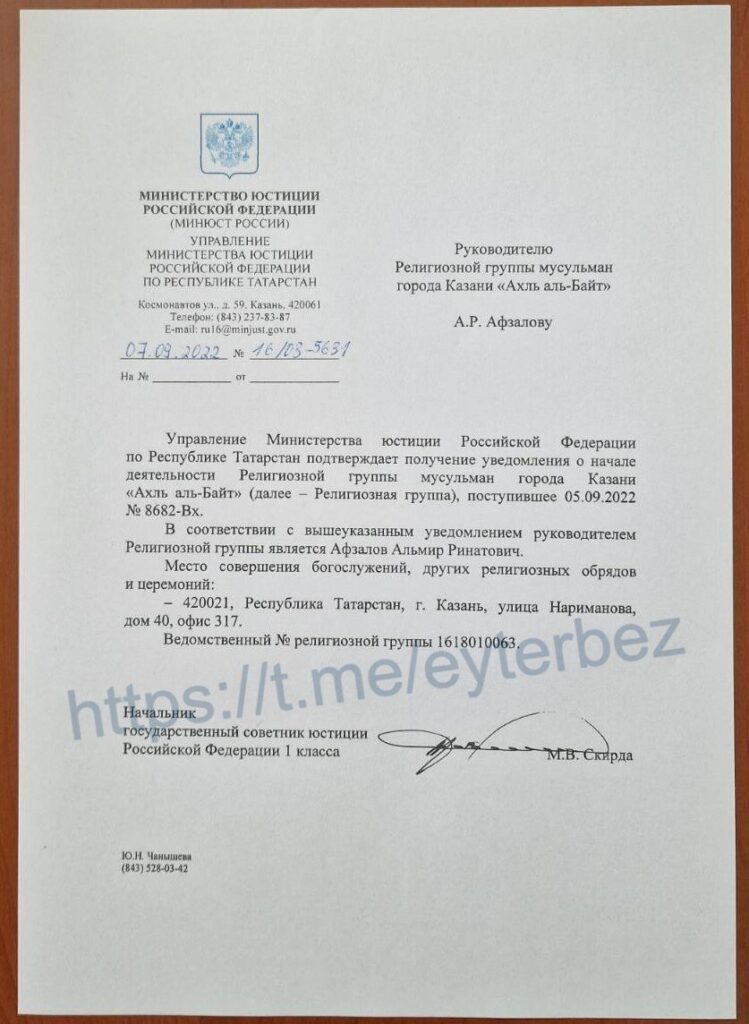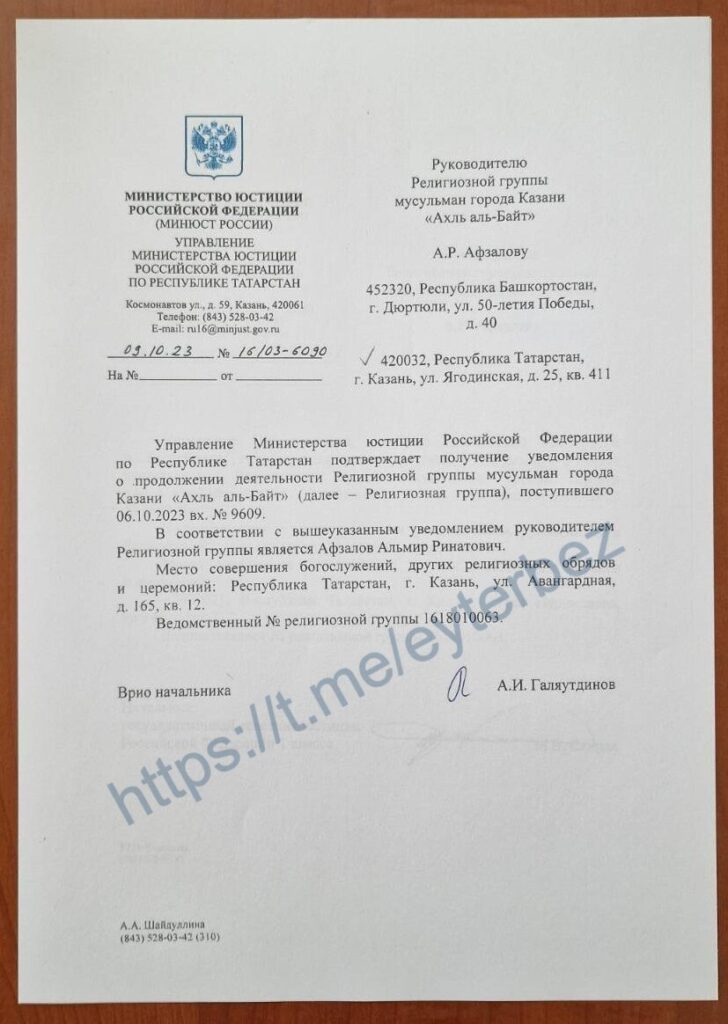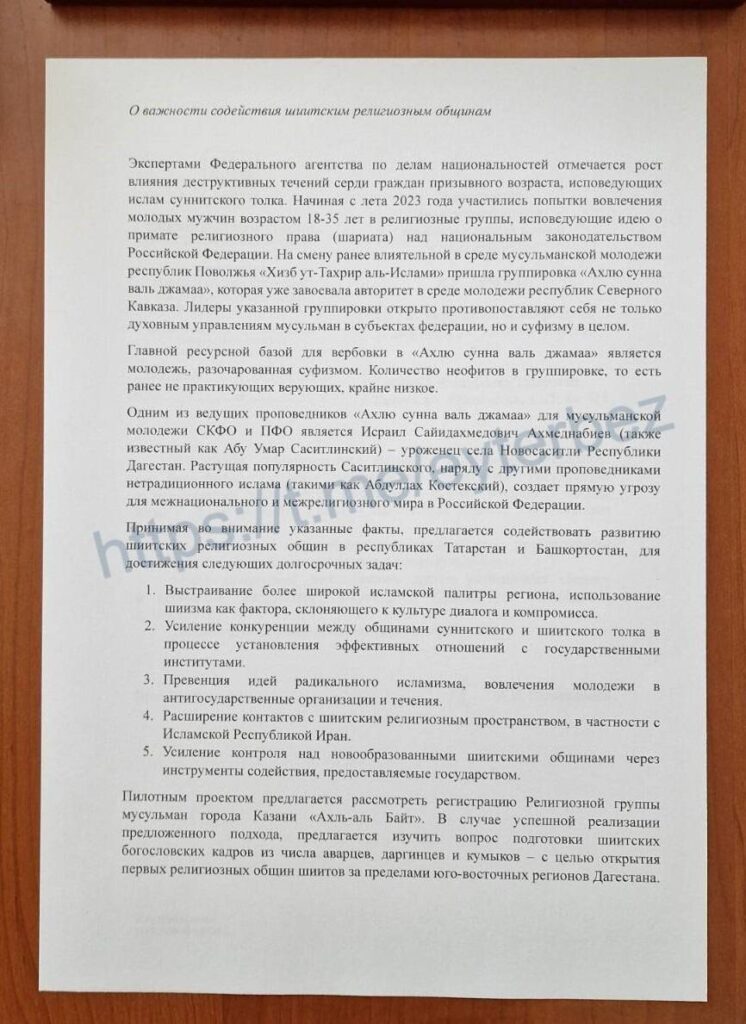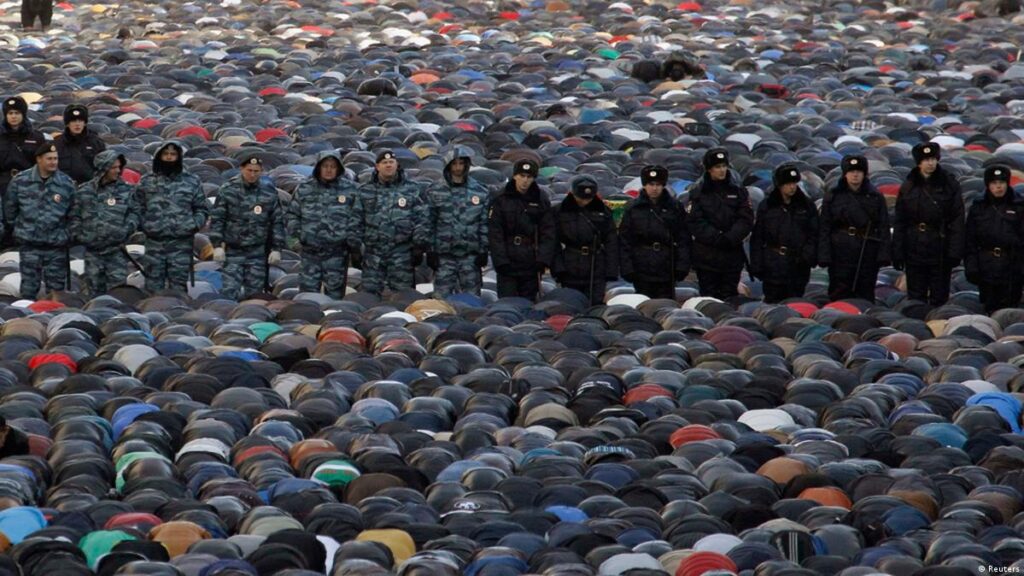Russia has launched a large-scale program to promote Shiism within Muslim communities in certain regions of the country. This move aligns with the strategic partnership requirements with Iran. The Kremlin is actively encouraging Shiite propaganda. The Federal Agency for Nationalities has issued a document titled “On the Importance of Promoting Shiite Religious Communities.”



Moscow has instructed the muftiates of Tatarstan and Bashkortostan to actively spread Shiism. These documents indicate that promoting Shiism is now a state objective aimed at preventing radical Islamist ideologies. This suggests that Shiism is being positioned against Salafism and Wahhabism.
The Federal Agency for Nationalities, in coordination with regional administrations and with the support of the FSB, will oversee the Shiism promotion project in the Volga region. According to Russian authorities, the Shiite project is intended to counteract radical Islamic ideas. The Kremlin has already begun selecting candidates from the local Muslim population to send to Iran for education. These individuals will establish Shiite communities in their regions.
Almir Afzalov, a graduate of the Iranian university Al-Mustafa, has been chosen as a propagandist for Shiism. In 2022, Tehran demanded that Moscow allow Afzalov to register the Shiite community “Ahl al-Bayt” in Kazan. Despite protests from the Tatarstan muftiate, the FSB ordered the transfer of the “al-Marjani” mosque to the Shiite community.
There is a high likelihood that Moscow might take similar actions in the North Caucasus, where a Shiite sect project already exists in southern Dagestan. Since the 1990s, with Iran’s help and FSB support, Moscow has been creating Shiite sects in southern Dagestan. Among the adherents of Shiism in southern Dagestan are mainly Azerbaijanis, Mountain Jews, and a small portion of Lezgins. Shiism appeared in this region during Iranian campaigns in the North Caucasus and the Safavid state’s terror in the 15th and 16th centuries.
Since the mid-2000s, with FSB help, Shiite propaganda has been actively promoted in central Dagestan, Makhachkala, Kaspiysk, and the Khasavyurt district. Shiite literature was imported into these regions to prevent the spread of radical Sunni Islam, which supported tension in Ingushetia, Chechnya, and Kabardino-Balkaria. In 2005, the “Center for Iranian Studies” was opened at Dagestan State University with the assistance of the Iranian embassy in Russia.
We believe the project to impose Shiism in the Caucasus is initially flawed because Dagestan’s residents historically view Shiism negatively, as do supporters of local Sufi sects. The region has a history of active warfare with Iran. Problems are likely to arise in Chechnya, where the political leadership is unlikely to risk sacrificing relationships with Arab monarchies. In 2017, Chechnya already closed its mosques to Shiite preachers.
There is a high probability that Moscow aims to weaken the influence of fundamental Islam and minimize the risk of Jihad in Russia by promoting Shiism. Iran’s interests align with the Kremlin’s. Tehran perceives the Caucasus as an area of Shiite Iran’s interests, viewing Azerbaijan as part of Iran and the North Caucasus as a periphery protecting Iran’s imperial expansion. Therefore, Iranian ideology and religion should be spread in the region. Tehran is aware that the Kremlin fears the radicalization of the Caucasus and that the Muslim population in Russia will grow. Hence, Iran offers Moscow an alternative: spreading Shiism to weaken resistance in the Caucasus, particularly in Chechnya.
Supreme Muftiof Chechnia Salah Mezhiev said: “We all should be vigilant. Russia has its own relations with Iran, which, through its cultural centers, spreads books such as Ayatollah Said Ali al-Sistani’s Collected Fatwas, Hossein Saidi’s Character of the Prophet of Islam, and the Character of Ali ibn Abi Talib. These and many other books confuse youth… There are Russian translations as well, published by the Shia. You can not read and follow their information. We warn people that we won’t allow neither Shiism, Wahhabism nor any other branches, which contradict Sunnism in Chechnya”.
Shiism in Iran serves as a means of influencing both external and internal audiences, being the most powerful tool in the arsenal of Shiite mullahs, who fanatically strive to revive the Persian Empire. Currently, there is no unified organization in Russia that brings together all Shiite communities. Mostly, Shiite communities in different cities interact at a grassroots level. In 1990, the World Assembly “Ahl al-Bayt” was created in Iran to coordinate Shiite communities outside Iran. It is this assembly that was registered in Tatarstan.
Thus, we believe that Tehran plans to take control of Shiite communities in Russia in the future, thereby increasing its influence over the Kremlin.


More on this story: Russian propaganda and psyop aim to insult Muslims

More on this story: Kremlin bringing IS threat back to Europe




